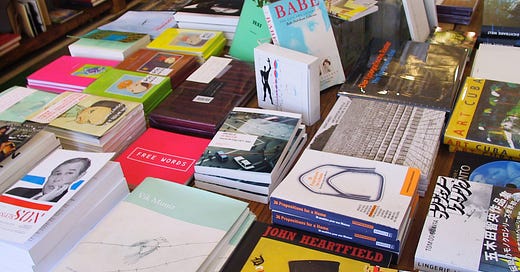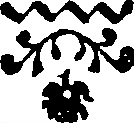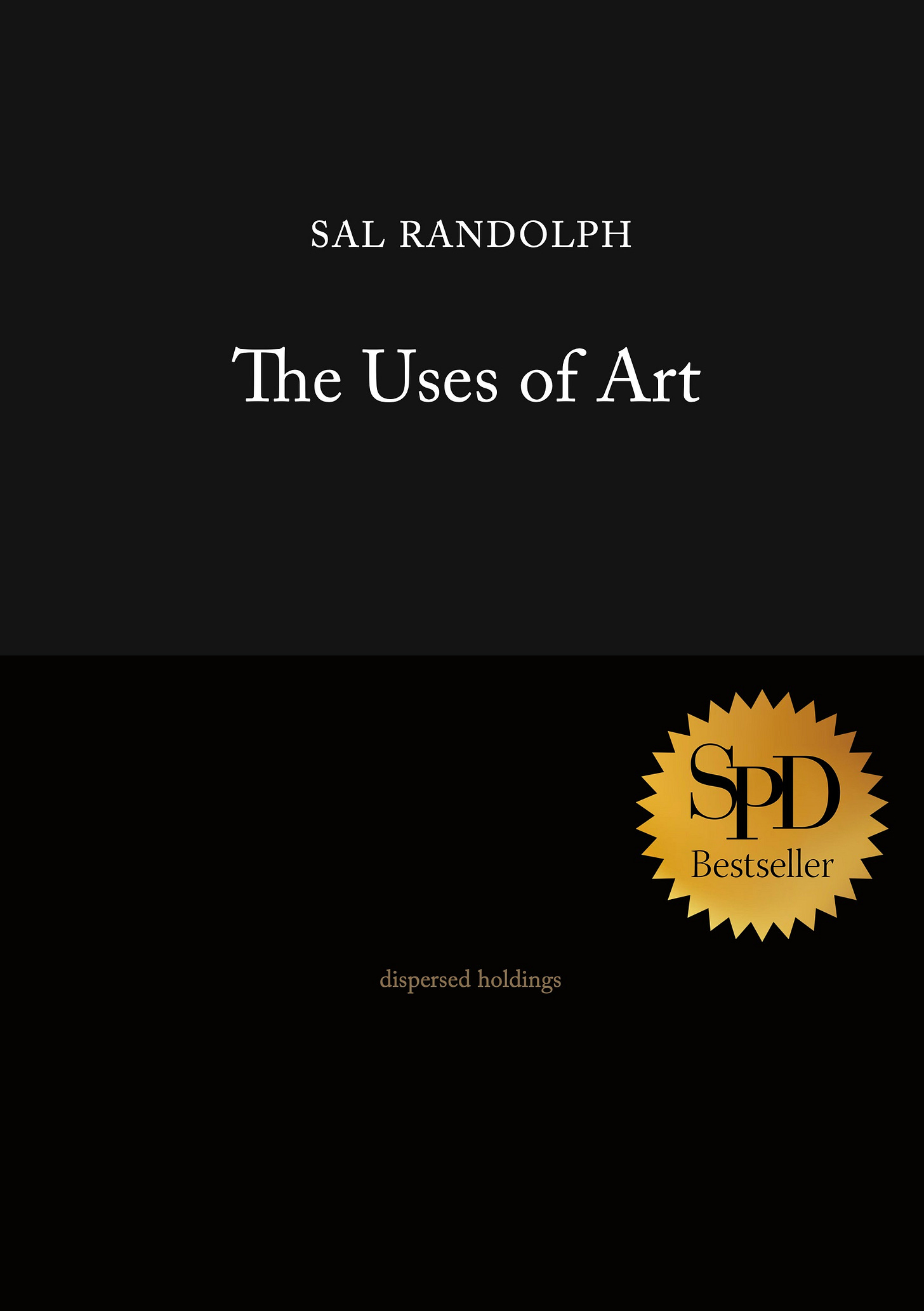Dear Friends,
Last week I announced a new name for this letter, Free Words. Here’s the story.
Free Words was an art project I started in 2001. It was a hot pink artists book I described as “a book that belonged to anyone who found it” and snuck onto the shelves of bookstores and libraries to be discovered. Free Words grew into a social artwork and gift economy that lasted several years and changed my art practice forever.
Over the coming weeks and months I’ll be sharing more about Free Words and my other experiental art projects from the 2000s. As time passes, these works have become pure story, and it’s time to become a storyteller.
— Sal
UPDATE: If you become a paid subscriber by the end of November, I’ll send you a copy of Free Words as a thank-you gift.
The Free Words Story
It began this way. Standing nervously in a bookstore, in front of the section on literary theory, hidden from the eyes of the staff, I reached my hand into my bag like a thief and pulled out a slim, hot pink book. I looked up and down the aisle. No one was watching. O.K., now. I slipped it into the shelf among the F’s (file under “free”) and it was done.
So I started my career as in infiltrator of public spaces, a thief not of books but of shelf space, of access. A bypasser of gateways, permissions, and procedures.
The book was called Free Words, and was an art project of mine. Its content was a list of 13,000 words I had collected over 10 years. I had uncopyrighted the text, placing it in the public domain (“no rights reserved”) and labeled the book as free. No price tag, no barcode, no ISBN — the back cover said only “this book belongs to whoever finds it.” I had printed 1000 copies of it, and the idea was to create a kind of situation.
Someone who came across the book would have to decide what it was and who really owned it. If they wanted it, they would have to decide whether to walk out with it like a shoplifter, or whether to negotiate something with the sales clerk. Bookstores would have to either purge the book or harbor it. There was a brief explanation and a web address at the back of the book, and if anyone made it to the site there was an invitation to become a distributor of the book, to join in the process of placing it in bookstores and libraries.
I spent a few months like that as 2001 came to a close — October, November, December — walking through a New York stunned by September 11, developing the habit of nonobedience [1]. This was the time when the media was telling us to shop, when we were being told to agree, as if agreement and shopping were the definition and extent of our citizenship.
At first I was nervous, afraid of being stopped, but after a couple hundred books I relaxed. I was never questioned. The more I did it, the more the commercial space of the city seemed like public space, my space. The city, recovering month by month, felt more like an ecology—a human social ecology, intricate and interdependent. There were more ways of living within it and of participating in it than I had supposed.
One of the questions raised by cities is who we are in them. How do we find ourselves as individuals, as agents? What kinds of citizenship are possible? Something about this project changed my relationship to the city from being a passive inhabitant of its structures, both social and architectural, to being more active, as I began to feel free to engage those structures more playfully, and to create new structures.
As the winter deepened, the Free Words project began to develop in a surprising way. On the website I invited people to become volunteer distributors of the book. I expected that a small number of people would find their way from the book to the website and an even smaller number of those might become distributors. What happened was something quite different: a few people did find the book and the website, but they weren’t all interested in simply becoming distributors themselves. Some of them told the story of Free Words on various online forums, journals and blogs, passing it on through their internet communities. Dozens of people who had never seen a copy of the book found their way to the site, and I began shipping batches of books to volunteers all over the country and the world. I printed more, and then more again.
For me the project became like a kind of dye, illuminating social networks that I had been entirely unaware of. I could also see how much people wanted to participate — how hungry they are to engage with art in a less passive way. Without intending to, I had set a gift economy in motion.
I borrow the term nonobedience from the poet Olga Broumas who uses it to describe an attitude distinct from disobedience. Where disobedience resists or acts directly counter to particular norms or rules, nonobedience disregards those rules entirely in favor of self-directed action. The act of placing unauthorized books on shelves (sometimes referred to as ‘reverse shoplifting’) might arguably be perceived as specifically disobedient, however the project was intended to be more importantly ‘nonobedient’ in relation to the structure of publishing, cultural institutions, and the commercialization of public space. From a political perspective, there are times when disobedience has a particular strategic resonance (as in civil disobedience), and other times when nonobedience can be an aspect of creating alternative structures.
[This story is an excerpt from an essay that was originally published in the journal Ethics & the Environment.]
More Free Words Stories
Here’s a story from Christina, who found one of the copies I placed in my favorite bookstore, Spoonbill & Sugartown in Williamsburg (shown in the picture at the top of this post):
inspired by the images of the book on this site, i set out today (01.31.02) to find a copy of free words. at 4pm i went to spoonbill&sugartown in williamsburg, where i searched for fuchsia-infused covers. feeling like a detective, i completely cased the joint but came up empty-handed. disappointed, i turned to leave...but something caught my eye. there it was, on the table right in front of me! free words, shouted the cover. how could i have missed it? was someone casing me, casing the store?? did (s)he know what i was after and place it there while i wasn't looking? suddenly everyone in the store looked suspicious...was it that guy over there? the clerk at the counter? were they all watching me? i had to get out of there fast. doing my best impression of the casual customer, i picked up the book like oh, what's this? and walked to the back entrance. with nary a backward glance i left. i could almost hear faint footsteps pursuing me...
so i now own a well-deserved copy of free words, but it was a harrowing experience. perhaps it will disappear from my bookshelves one day...but if i wake up tomorrow with another copy under my pillow, i'll really be worried. the words may be free, but the book has a strange effect...pursue with caution...and enjoy.
You can read stories from people who found or distributed the book here.

I’m pretty sure these hands belong to
!!I’d love to hear your thoughts! Have you known me long enough to remember Free Words or to have a copy on your shelf?
Further adventures and new ways of seeing can be found in my book, The Uses of Art.
Artist Sal Randolph’s THE USES OF ART is a memoir of transformative encounters with works of art, inviting readers into new methods of looking that are both liberating and emboldening.
Dazzlingly original, ferociously intelligent.
— Michael Cunningham
A joyful, dazzling treasure-box of a book.
— Bonnie Friedman
Here’s a guide, to waking up, over and over again.
— Roshi Pat Enkyo O’Hara









Wow. That’s incredible. I don’t know what else to say . It kind of reminds me when I started a non profit to give away thousands of free books every week to my commuters. I didn’t expect any reaction at all. Just my small way to give back. But it boomed out of proportion and we were written up about by all sorts of media— the New Yorker included. But we collected the books in drop boxes kept at Whole Foods and other places. I wasn’t nearly courageous enough to slip in my own work.
Sal! I adore the pivot in your naming of your substack page! Back to the past but also forward to the future. The Free Words experiment captivates me. As always, you’ve given me a raft of ideas to think about! 🙏🏻